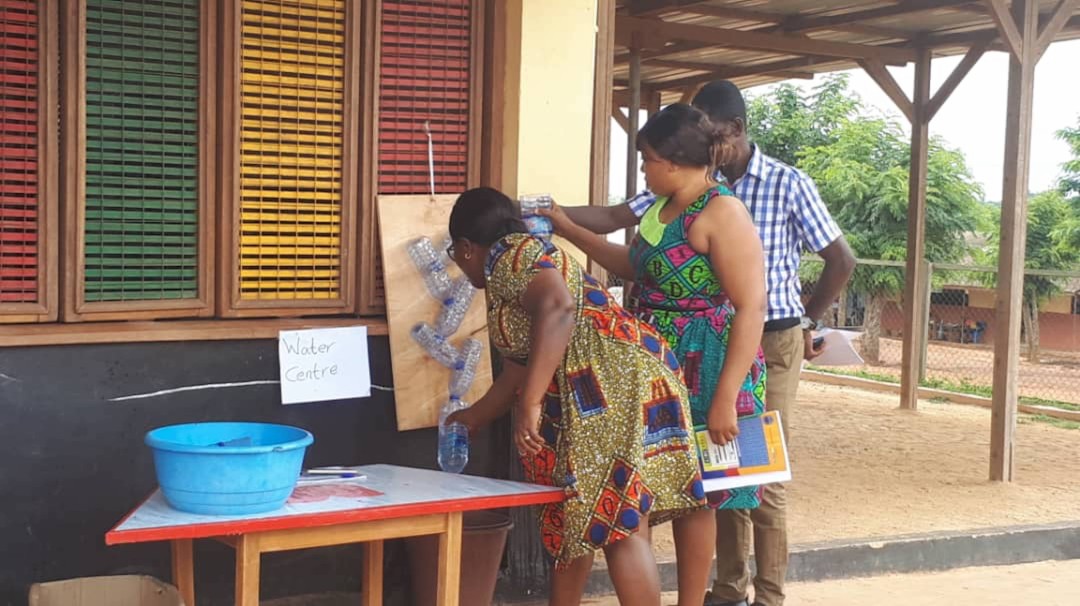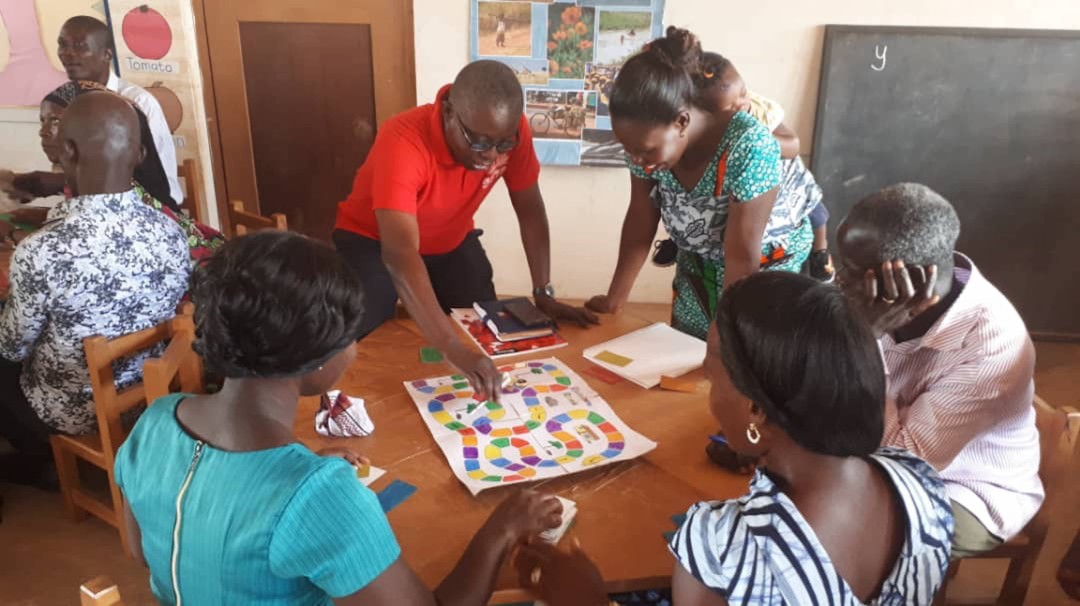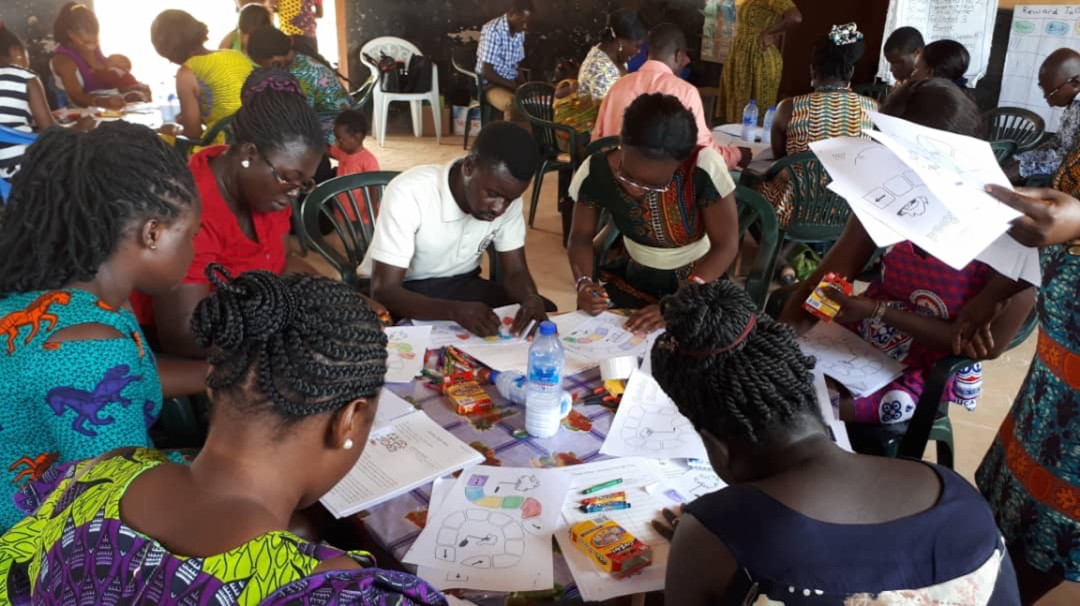Improving teaching methods
The project aimed to deliver a condensed in-service teacher training programme to 100% of the government kindergarten schools in the Abura-Asebu-Kwamankese District, improving teachers’ methods and children’s learning outcomes. More specifically, the project would improve the teachers’ capacity to deliver the Ghana kindergarten curriculum through an active play-based learning methodology. Kindergarten students would have improved learning outcomes, in numeracy, literacy and creativity, giving them the tools to start a better life. All the schools would be provided with culturally-appropriate books, toys and classroom guides.
The two- year project results exceeded expectations, benefiting a total of 7,099 people comprising eight Ghana Education Service trainers, 271 kindergarten teachers, 87 head teachers,13 Ghana Education Service District Officers, and 16 college tutors. More specifically, 6,704 four and five-year-old children received a quality education, equipping them with the foundation skills to succeed in primary school. Schools were outfitted with age and culturally-appropriate books, toys and classroom guides. In addition, a number of kindergarten specific assessment tools were developed by Sabre Education and the Ghana Education Service for measuring teacher and child outcomes. All of the above mentioned teachers, head teachers and Ghana Education Service District officers received support and training to use these tools.
Sabre Education is a British charity founded in 2004. It aims to contribute to transforming the life chances of children in developing countries by improving access to and the quality of their early years education.
News
Type
EducationDuration
September 2018 – August 2020Location
Abura-Asebu-Kwamankese District / GhanaWith whom
Sabre Education
Website



Ghana
Population
28.8 million (2017)
Per Capita Income
USD 1'880/year (2017)
Poverty rate *
23% (2017)
Literacy rate
71% (2016)
Human Development Index
140th out of 189 countries (2018)
Renowned for its stability and democratic governance Ghana has made great progress over the past 20 years in reducing poverty and hunger among its population. Its economy is growing ahead of the average for the Africa region. This is reflected in gradual improvements in the efficiency of public institutions. Although primary school enrolment has reached 100 %, secondary school enrolment lags at 60% for male students and 47% for female students. Health care varies widely across the country with huge inequalities between the north and south of the country and between urban centres, generally well served, and rural areas often with no health care at all. Similarly, water supply and sanitation still face a number of challenges, mainly due to neglect until the 1990s.
Sources: World Food Program, UNICEF, World Bank, 2016 Human Development Report, Human Development Indices and Indicators (2018 Statistical Update)
*The percentage of the population living below the national poverty line.